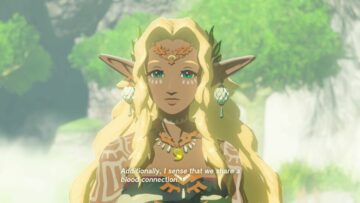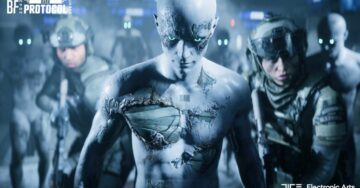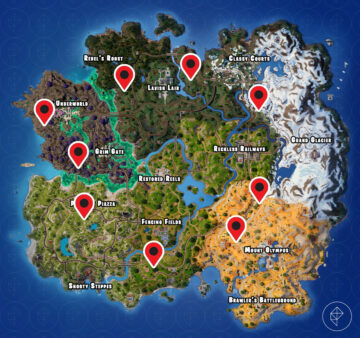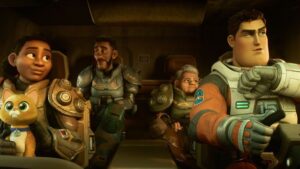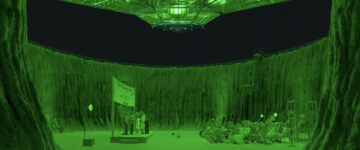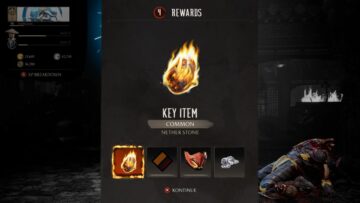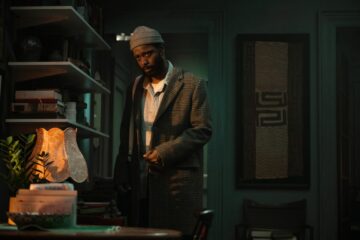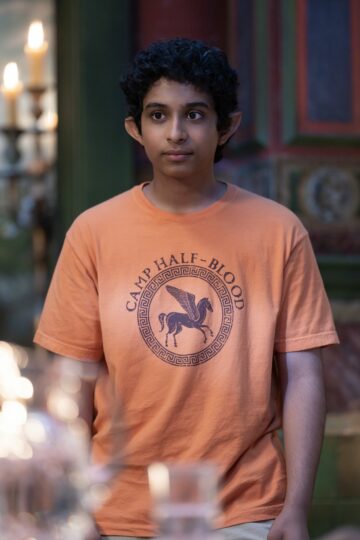In the year and a half since the season 1 finale of Our Flag Means Death left awkward pirate captains Stede Bonnet (Rhys Darby) and Edward “Blackbeard” Teach (Thor: Ragnarok and Thor: Love and Thunder director Taika Waititi) emotionally staggered and physically separated, the show’s vocal, expressive fandom seems to have steadily grown, getting louder, more organized, and more excited for the second season with every passing month.
That’s a lot for series creator and showrunner David Jenkins to contend with. There was no guarantee that the show — which starts out as an ensemble workplace comedy based in real history, then turns into a giddy queer fantasy romance — would find its footing, let alone earn the kind of engaged fan base that most shows dream of.
The first season’s success made one particularly visible impact on season 2: The show shifted production from a Los Angeles sound stage to a much more ambitious location shoot in New Zealand, which let the crew bring some particularly ambitious fantasy elements to the show. Just ahead of the season 2 premiere, Polygon sat down to catch up with Jenkins on the fans’ impact on his season 2 planning, what he wants for the series’ future, and why he sees Stede and Blackbeard as a pair of awkward teenagers just starting to mature past the fairytale phase of their story.
This conversation has been edited for clarity and concision.
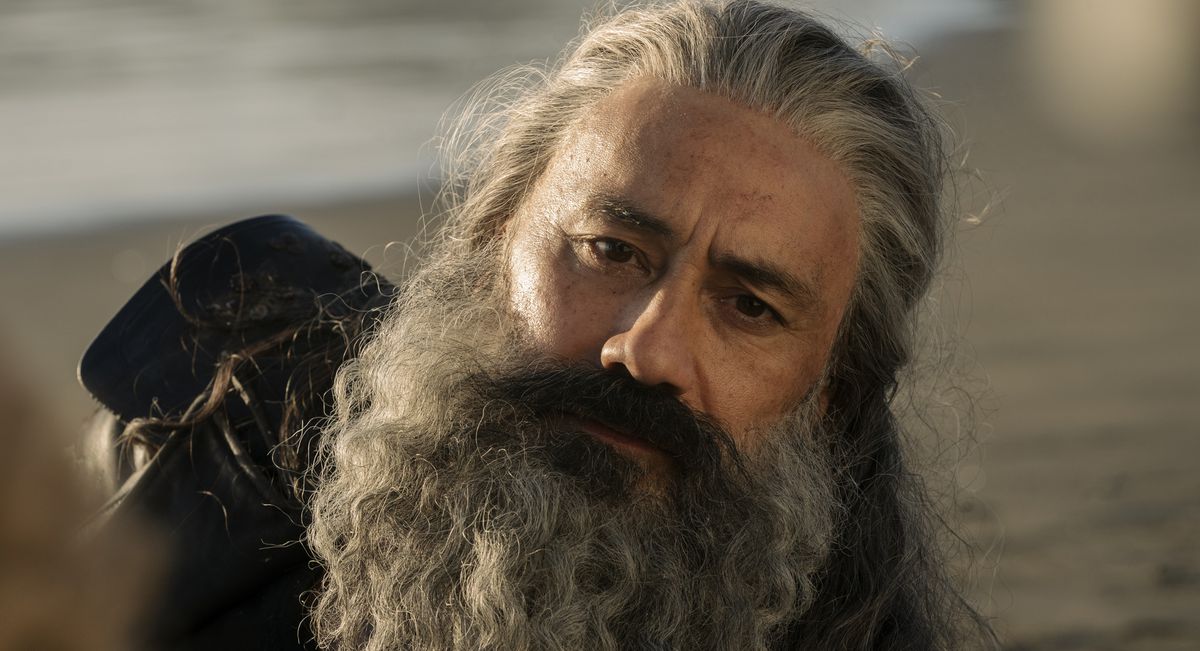
Polygon: The most surprising thing for me about the season 2 episodes critics have gotten to preview is the rapid pacing. You’ve said in the past that you’re thinking of this as a three-season show, and I was expecting this to be the season where Stede and Blackbeard have separate adventures, and work their way back toward each other by the end of the season — the grimace on your face tells me that was never a consideration!
David Jenkins: Everyone would have been so pissed! That’s the thing about being a fan of your own creative work — we’re creating the show I’d want to watch. Finding a device to keep them apart — that would have just felt like a device. The point of the first season to me is that these two people are learning what love is for them. In the last episode, Stede’s ex-wife tells him what love is, and then he’s like [perky Stede Bonnet impression] “Oh! Then I’m going back!” And then Blackbeard is like [Blackbeard impression, grumbling sulky noises]. In the last episode, he’s dealing with the fact that he even made himself vulnerable.
The second season to me is like, you have the kiss, you decide you’re gonna run away together, you decide not to do it, ultimately. So watching these two characters navigate each other — at the end of the first season, they’re 14-year-olds, emotionally. In this season, it’s more like they’re in their late 20s. They’re like, [Blackbeard impression] Oh, man, should we move in together? What would that be like? Whose home would we live in, yours or mine?
Watching those two characters deal with that, in this setting, is interesting to me. It’s about the work of a relationship — what does it mean to have a mature relationship? Do we want to do that? And can we do it? Do we have the equipment to do it? That’s an interesting story to follow the fairytale story of “We met each other and we kissed.”
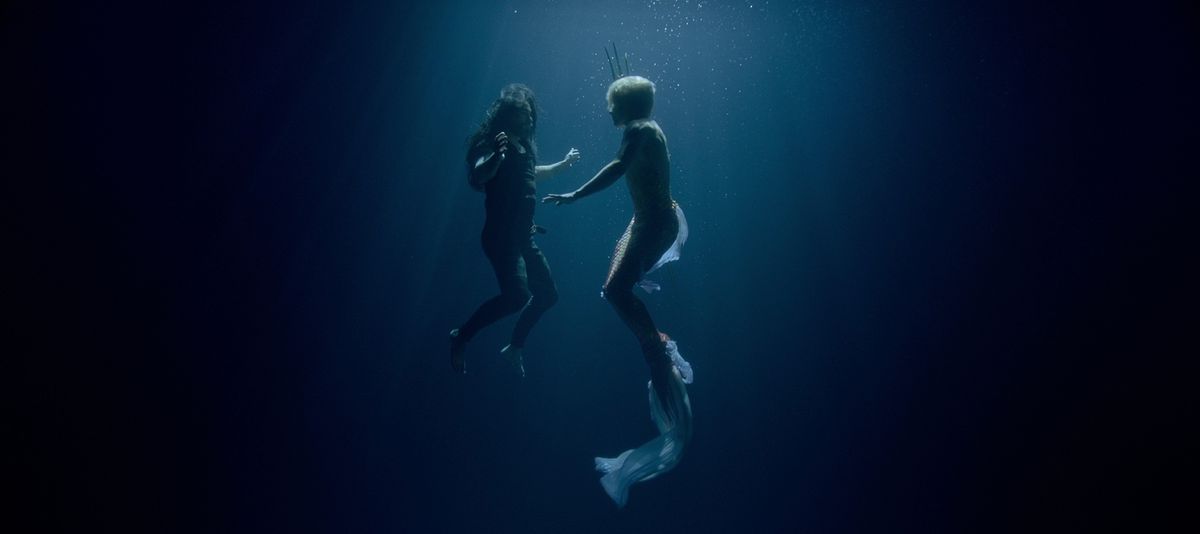
The last time we spoke, you said that the actual writing process on season 2 would probably change a lot of your story plans. How did that end up working out?
It was a good process. It was an additional challenge shooting in New Zealand. They’re wonderful. They work shorter days in New Zealand, which is how basically everything should work. They’ll shoot an 11-hour day. Producing this in LA, or anywhere else, we could go to 16-hour days, and have all this time. And after shooting this season, I think that’s too much time — shooting shouldn’t go that long! Looking at these scripts while we were shooting, we were saying “Oh yeah, this needs to be tighter! We need to pull this back a little bit.”
In a show that has such a large ensemble, making sure you’re doing everybody justice is the biggest challenge, after the writers’ room has wrapped and you’re going through everything. And then in the room itself, the challenge of the show is servicing all the characters, and making sure everyone has a semblance of an arc, that all the Muppets get something cool to do, and that we get to see all of our favorite Muppets. That’s the challenge of the show — to tell a big, sprawling story in little 30-minute increments, with two fewer episodes than last season. You really need to pick your shots.
Given that Stede and Blackbeard were the big breakout characters of last season, and you’re introducing even more key characters in season 2, how did you manage that balance, and figure out what everyone’s individual story needed?
It’s pretty organic, because as we’re going through and tracking everybody’s journey for the season, we’re watching the thing that holds us together — what stage of Stede and Blackbeard’s relationship are we in? Because the overarching arc is, are these guys going to learn how to settle into a relationship? Two people who run and who disrupt their relationships — what does it look like when they try to commit?
While we’re telling that arc, there are smaller arcs. Black Pete and Lucius kind of mirror Stede and Blackbeard’s relationship in some ways, and in some ways, they’re a counterpoint to it. And then the individual crew relationships — we’re going through, just trying to say, Where am I bored? Where are we not bored?
Writing it was exciting to us, because we’re all fans of the show as we’re writing it. So it really is just us saying, OK, we haven’t seen this character in a while. Where are they? Let’s check in on them. How can we dramatize what they’re going through on the inside? Which part of this external story can we use to dramatize the things they’re going through emotionally?
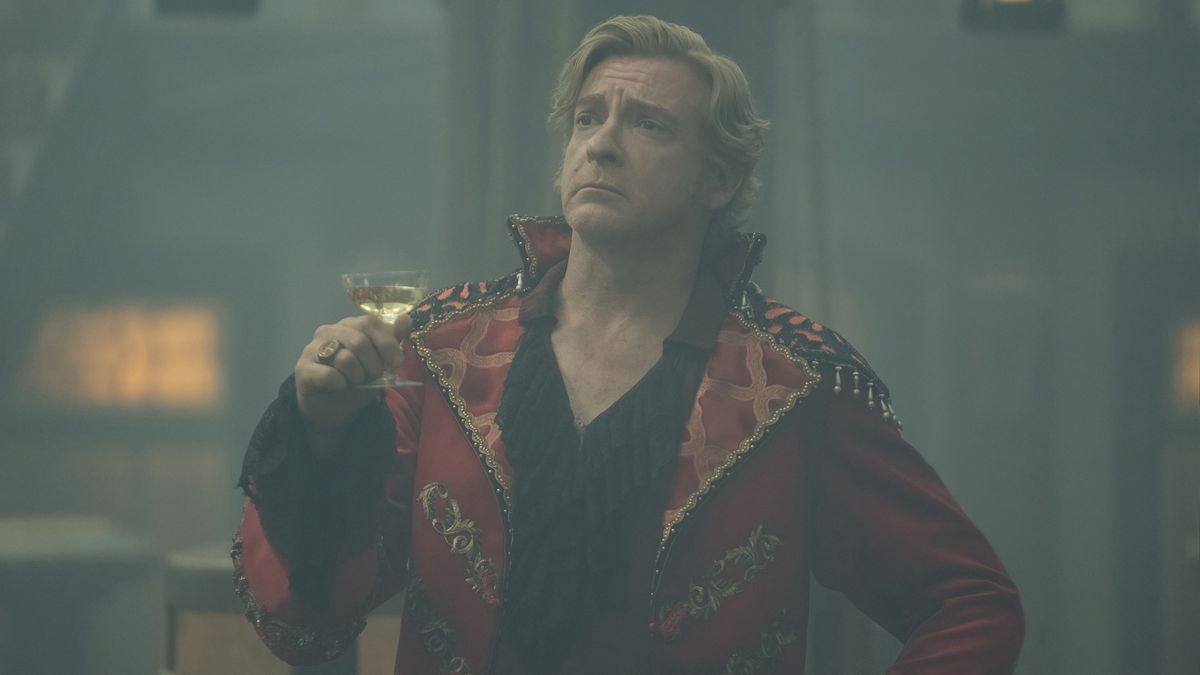
When you were writing season 1, you didn’t have a huge, vocal fandom for the show. How did awareness of that audience change season 2?
It made us writing it, and everyone acting in it, designing for it, and everything else feel like the wind was at our back, in a different way. Now it’s like Oh, people know what the show is! The second season is more overtly about romance, and more a relationship story. The first season, the tension of it is like, Oh, are these guys falling in love? You’re watching that slowly build. This season, it’s more like, The family exists. We know these characters care about each other.
Watching how the fandom processed the first season was fun and energizing for all of us, but at the same time, you have to forget them when you go into the writers’ room. And as I say, we’re fans too. So we’re writing things for the characters that we like. The term fanfic — it’s just fic! You should be a fan of your own thing. Your own writing about your own thing should feel like fanfic. It just means you’re into it, and you like it, and you want to see the characters in different circumstances. And the fact that people do that for free, because they like it, is just the best feeling. What an honor.
Are you still thinking you want to do three seasons in total? Did the process of writing this season shift that at all?
I think three would be good. I think threes are good in general. We’re looking at three stages of a relationship — coming together, realizing you’re in love, then figuring out what you have to do to keep that love, and move past it. And then I think there is another story to tell, where it’s like, How do you keep that love alive? When you have a relationship, what’s your responsibility to each other?
There are times when it’s not always fun. You’re like Shit, I don’t know, you stopped growing and I’m still growing. I stopped growing, and you’re still growing. These are the things I like to see in a fantasy story about love, because I think a lot of times, we don’t. We get this idealized version of love. But love is work. And I’d like to see that in my fantasy a little bit. I think that’s a helpful thing to see, so we don’t all think, Oh, I’m gonna fall in love, and that will be it. I’ll meet my one. It’s like, “No, motherfucker, love is work! And it’s hard! And then you do the work, and hopefully, it works out!”
Polygon will have more from this conversation with David Jenkins later in the season, digging into some Our Flag Means Death season 2 spoilers. New episodes arrive on Thursdays on Max.
- SEO Powered Content & PR Distribution. Get Amplified Today.
- PlatoData.Network Vertical Generative Ai. Empower Yourself. Access Here.
- PlatoAiStream. Web3 Intelligence. Knowledge Amplified. Access Here.
- PlatoESG. Carbon, CleanTech, Energy, Environment, Solar, Waste Management. Access Here.
- PlatoHealth. Biotech and Clinical Trials Intelligence. Access Here.
- Source: https://www.polygon.com/23914899/our-flag-means-death-interview-david-jenkins-taika-waititi-rhys-darby-season-2-relationships
- :has
- :is
- :not
- :where
- $UP
- 1
- a
- About
- acting
- actual
- Additional
- After
- ahead
- alive
- All
- alone
- always
- am
- ambitious
- an
- and
- Angeles
- Another
- anywhere
- apart
- Arc
- ARE
- AS
- At
- audience
- awareness
- away
- back
- Balance
- base
- Basically
- BE
- because
- been
- being
- BEST
- Big
- Biggest
- Bit
- Black
- Blue
- Bored
- breakout
- bring
- build
- but
- by
- camera
- CAN
- care
- carrying
- Catch
- challenge
- change
- character
- characters
- check
- circumstances
- clarity
- cocktail
- Comedy
- coming
- commit
- Conversation
- Cool
- could
- counterpoint
- covered
- Creating
- Creative
- creator
- crew
- Critics
- David
- day
- Days
- deal
- dealing
- Death
- decide
- deep
- designing
- device
- DID
- different
- Disrupt
- do
- does
- doing
- Dont
- down
- dream
- each
- earn
- edited
- Edward
- elements
- else
- end
- engaged
- episode
- Episodes
- equipment
- Ether (ETH)
- Even
- Every
- everybody
- everyone
- everyone’s
- everything
- excited
- exciting
- exists
- expecting
- expressive
- external
- Face
- fact
- Fall
- Falling
- family
- fan
- fans
- FANTASY
- Favorite
- feel
- felt
- fewer
- Figure
- finale
- Find
- finding
- First
- follow
- For
- Free
- from
- fun
- future
- General
- get
- getting
- Go
- going
- good
- Growing
- grown
- guarantee
- Half
- Have
- he
- helpful
- him
- his
- holds
- Home
- honor
- Hopefully
- hover
- How
- How To
- HTTPS
- huge
- i
- I’LL
- Impact
- in
- individual
- inside
- interesting
- into
- introducing
- IT
- ITS
- itself
- journey
- jpg
- just
- Justice
- Keep
- Key
- Kind
- kiss
- Know
- la
- large
- Last
- Late
- later
- LEARN
- learning
- left
- let
- like
- little
- live
- location
- Long
- Look
- look like
- looking
- LOOKS
- los
- Los Angeles
- Lot
- louder
- love
- made
- Making
- man
- manage
- mature
- max
- me
- mean
- means
- Meet
- met
- mine
- mirror
- Month
- more
- most
- move
- much
- my
- Navigate
- Need
- needed
- needs
- never
- New
- New Zealand
- no
- now
- of
- on
- ONE
- or
- organic
- Organized
- Other
- our
- out
- overarching
- own
- pair
- part
- particularly
- Passing
- past
- People
- phase
- Physically
- pick
- planning
- plans
- plato
- Plato Data Intelligence
- PlatoData
- Point
- Polygon
- poses
- Premiere
- pretty
- Preview
- probably
- process
- processed
- producing
- Production
- rapid
- real
- realizing
- really
- Red
- relationship
- Relationships
- responsibility
- romance
- Room
- Run
- Said
- same
- say
- saying
- scripts
- Season
- Season 1
- season 2
- seasons
- Second
- see
- seems
- seen
- sees
- separate
- Sequence
- Series
- servicing
- setting
- settle
- shift
- shifted
- Shoot
- shooting
- shots
- should
- show
- Shows
- silk
- since
- Slowly
- smaller
- So
- some
- something
- Sound
- Space
- Stage
- stages
- Starting
- starts
- steadily
- Still
- stopped
- Story
- success
- such
- sure
- surprising
- teenagers
- tell
- telling
- tells
- term
- than
- that
- The
- their
- Them
- then
- There.
- These
- they
- thing
- things
- Think
- Thinking
- this
- those
- three
- Through
- time
- times
- to
- together
- too
- Total
- toward
- Tracking
- try
- trying
- turns
- two
- Ultimately
- underwater
- us
- use
- version
- visible
- vocal
- Vulnerable
- want
- wants
- was
- Watch
- watching
- Way..
- ways
- we
- webp
- were
- What
- when
- which
- while
- WHO
- whose
- why
- will
- wind
- with
- wonderful
- Work
- working
- working out
- Workplace
- works
- would
- Wrapped
- writing
- year
- you
- Your
- Zealand
- zephyrnet

